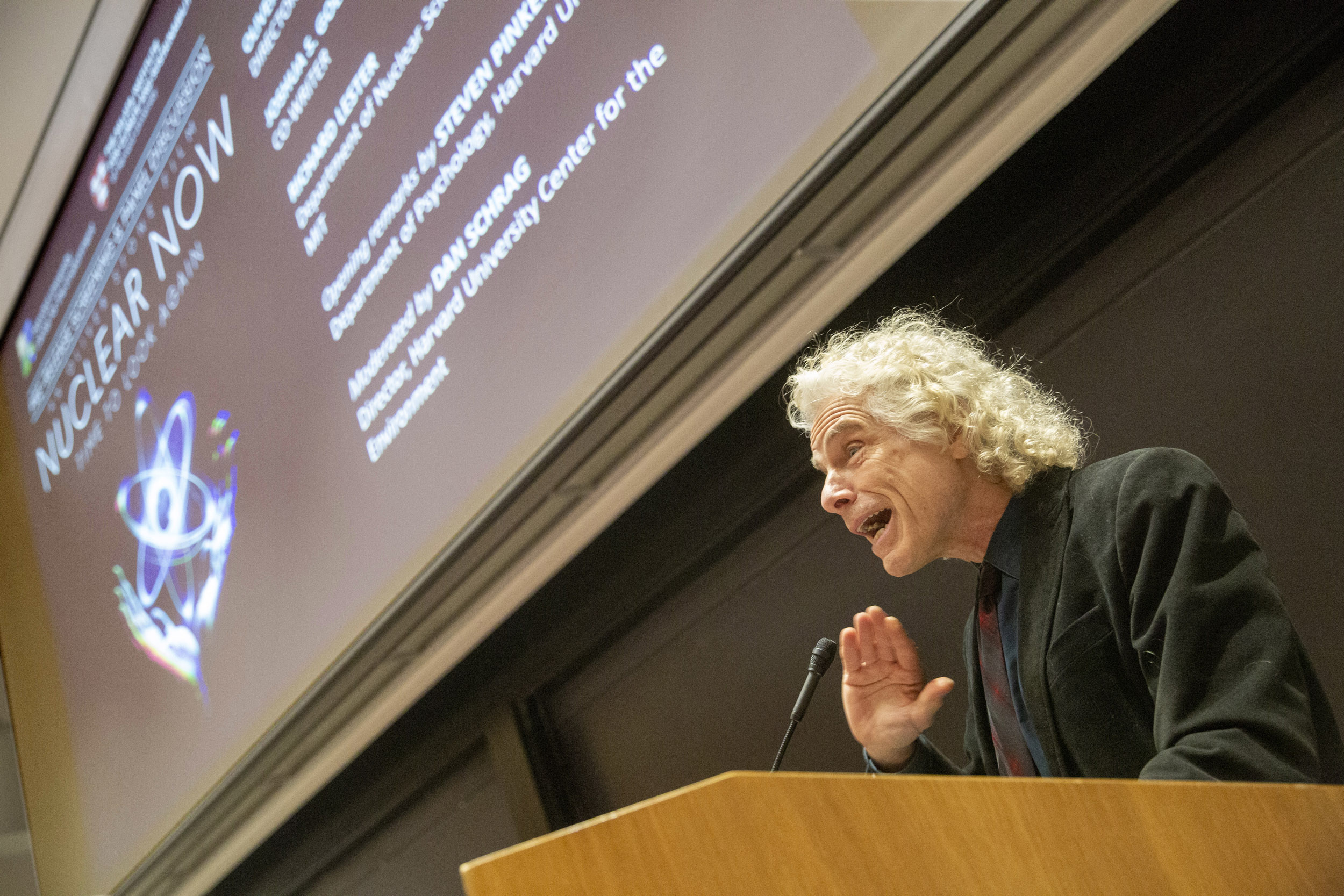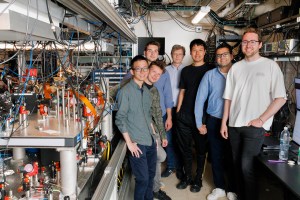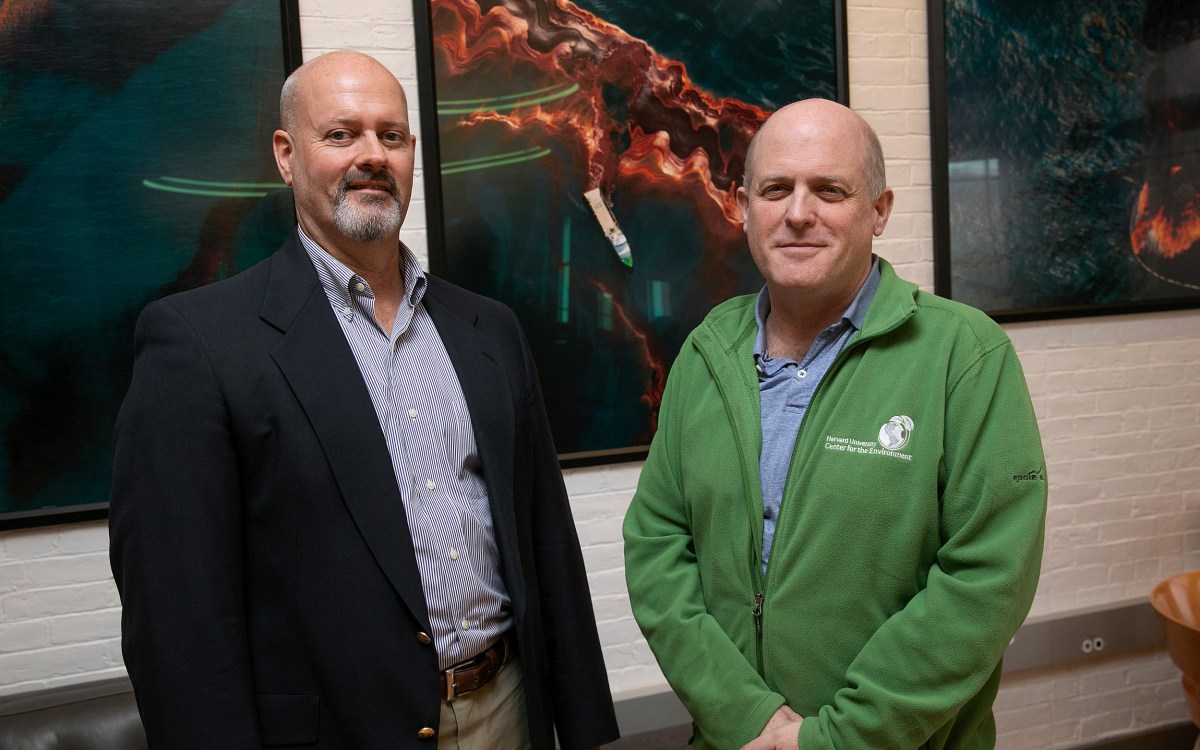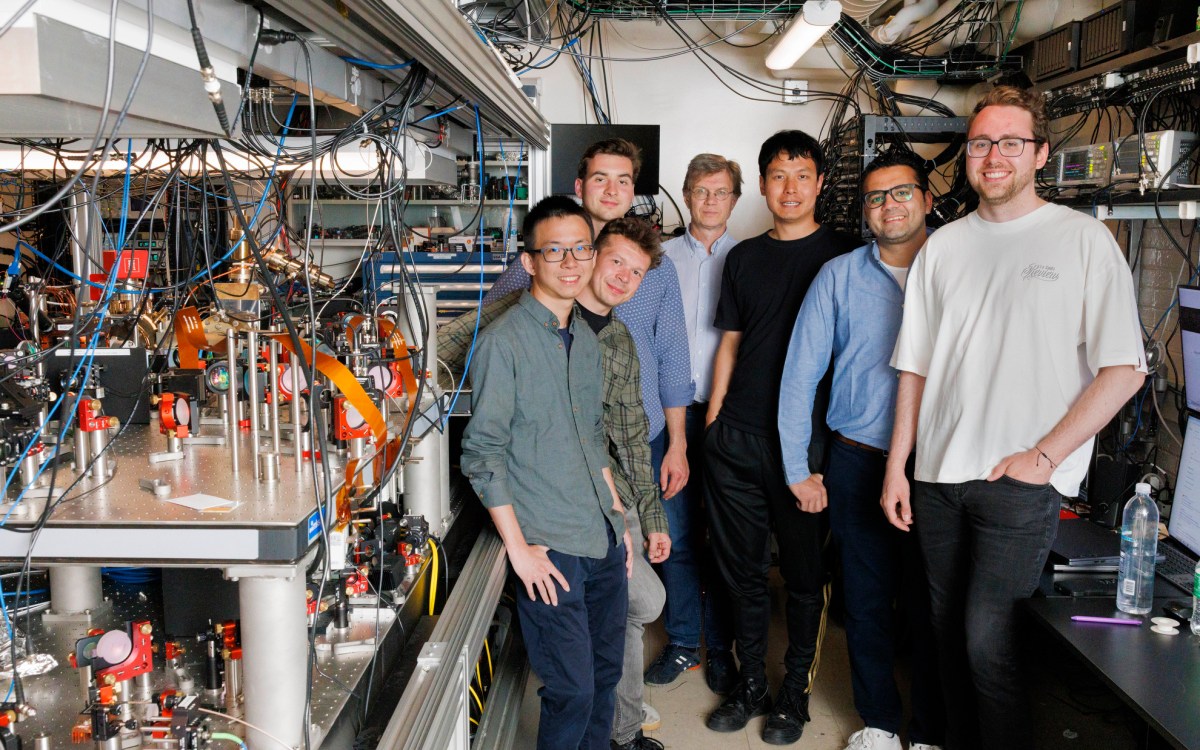
Oliver Stone (right) with co-writer Joshua S. Goldstein before the Harvard pre-screening of his documentary “Nuclear Now.”
Photos by Jon Chase/Harvard Staff Photographer
Oliver Stone wants you to reconsider nuclear power
In panel following preview of new film, director debates its merits as a climate change solution
Director Oliver Stone — on campus earlier this month to promote his new film — argued nuclear power has been stigmatized and overlooked as a solution for meeting the world’s energy needs amid climate change.
Joining Stone at the “Nuclear Now” prescreening and panel at the Science Center was co-writer Joshua S. Goldstein; Richard Lester, associate provost at MIT; and moderator Daniel Schrag, director of Harvard’s Center for the Environment. The screening was introduced by psycholinguist Steven Pinker.
“Since Hollywood and mass media and the entertainment industry may have played some role in turning off an entire generation to nuclear power, it seems quite fitting that an icon of Hollywood is taking an active role in changing public consensus about nuclear power,” said Pinker, Harvard’s Johnstone Family Professor of Psychology.
“Nuclear Now” paints a picture of urgent need: global fossil fuel consumption rapidly increasing as developing countries modernize and populations grow. Nuclear power, it argues, is a clean, safe, reliable alternative to fossil fuels. The film covers the history of nuclear power, from key scientific discoveries to world powers harnessing it for mass destruction. It makes a point of separating nuclear power from nuclear bombs.
Addressing other safety fears tied to nuclear — the film posits that past accidents, caused by poor design, can be prevented with new reactors, and that despite Hollywood portrayals, meltdowns in Chernobyl, Three Mile Island, and Fukushima have led to far fewer casualties than the fatal levels of air pollution produced annually by coal and other fossil fuels. It argues small amounts of radiation have not been proven to cause health issues — imagery of dental offices and X-ray machines cross the screen.

Along with safety, cost was a major topic of the panel. Stone and Goldstein said the industry will right-size itself through repetition of production, while others expressed doubts.
“In South Korea, they’re building the same thing over and over, and cost comes down,” said Goldstein, who co-authored “A Bright Future: How Some Countries Have Solved Climate Change and the Rest Can” with Swedish engineer Staffan Qvist.
Schrag, who said he supports nuclear, relayed skepticism of the cost argument, adding that despite success abroad, estimates for production of U.S. reactors would still be in the tens of billions of dollars.
“To make even a significant fraction of a dent in the climate problem requires somehow a big change in the economics,” he said.
Stone proposed opening up production across borders. “The idea has to be expanded to China and Russia and above all we have to get away from this world animosity that I think the United States has played a large role in creating.”
Lester said innovation, along with repetition, can bring down nuclear costs, but bureaucracy is a barrier.
Several of his former students are innovators in the nuclear sector, including Jacob DeWitte and Caroline Cochran, co-founders of startup Oklo, which is featured in the film. “When you look at what it takes for these entrepreneurs to get their new designs through the regulatory game, it’s taken 10 years for one of the reactor types that was mentioned in the movie to be reviewed by regulators, and they’re still not through.”
From the audience, William Hogan, research director of Harvard Electricity Policy Group, said he sees a challenge for poorer countries. “What we do in the United States is important, but that’s not the problem. The problem is what’s going to happen to all these other places when they look at our story about how cheap it is in order to get to zero emissions and they say that looks pretty expensive.”
John Marshall, CEO of the Potential Energy Coalition, also speaking from the audience, said public opinion on nuclear may be shifting — only one in seven people are opposed, according to a survey his organization conducted in 2021.
Lester said he believes nuclear, despite its challenges, is unmatched in its potential to meet the world’s energy needs.
“We are not able to come close to addressing the climate change and decarbonization goals that have been set for the world without a lot more nuclear power. I just don’t think it can happen any other way.”
“Nuclear Now” opens to the public with a limited theatrical release on April 28.







